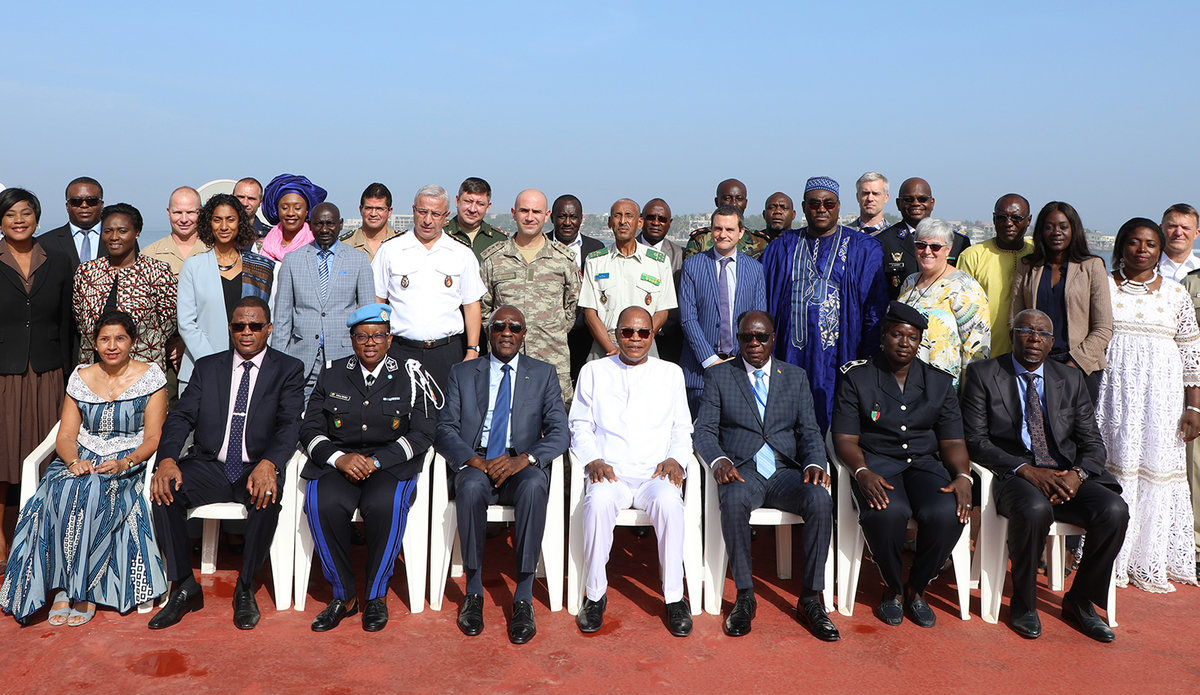Defense and security staff discuss innovative ways to resolve intercommunal violence in West Africa and the Sahel
For several years, security threats have increased in West Africa and the Sahel, to the point of dangerously jeopardizing peace and stability of States. The evolving nature of threats and insecurity in the region is further aggravated by increasing inter-communal violence which has become particularly deadlier in the Sahelian zone (Mali, Burkina Faso and Niger) and Nigeria. Faced with this multiplicity of security challenges, national, regional and international stakeholders have embarked on responses using various prevention, response and mitigation tools. Security and Defense forces actions remain one of the critical and most frequently used tools in the region for preventing and managing security challenges. However, the security approach alone will not suffice if it’s not combined with other effective social and economic initiatives.
In this context, and in line with its mandate, the United Nations Office for West Africa and the Sahel (UNOWAS) organized on 24 October, in Dakar, a Conference on the role of defense and security forces in the prevention and management of intercommunal violence in West Africa and the Sahel.
Addressing inter-communal violence requires holistic, full range of socio-economic, political, tackling of environmental and climate change issues, education, infrastructure development...
“Addressing inter-communal violence requires holistic, full range of socio-economic, political, tackling of environmental and climate change issues, education, infrastructure development, social inclusion and respect for minority groups among others, as well as respect for human rights and the rule of law”, said the Special Representative of the United Nations Secretary General for West Africa and the Sahel, Mohamed Ibn Chambas.
The increasing of intercommunity conflicts that are affecting the Sahel region, including absence of the state, proliferation of arms, erosion of traditional conflict resolution mechanisms and other underlying factors such as poverty and climate change, were the main issues discussed by the participants.
During the conference, participants also underlined the complexity of the phenomena, and the necessity to avoid a purely military approach by using a more targeted response that focuses on social inclusion through multi-disciplinary training of defense staff. “Inter-communal violence is now influenced by factors beyond the capacity of traditional or local and sometimes national security to prevent or manage. This therefore calls for innovative, effective and efficient stakeholder involvement to deal with the communal violence”, added Mr. Ibn Chambas.
Among the participants were defense and security staff from embassies of the region and the international community, NGOs, think tanks, as well as high-level military staff including former Head of the United Nations Mission in Central Africa (MINUSCA), Ghana’s Ambassador to Mali, Commander of French Forces in Senegal, Senior Police Advisor of United Nations Office in Central Africa (UNOCA).
 UN
UN


